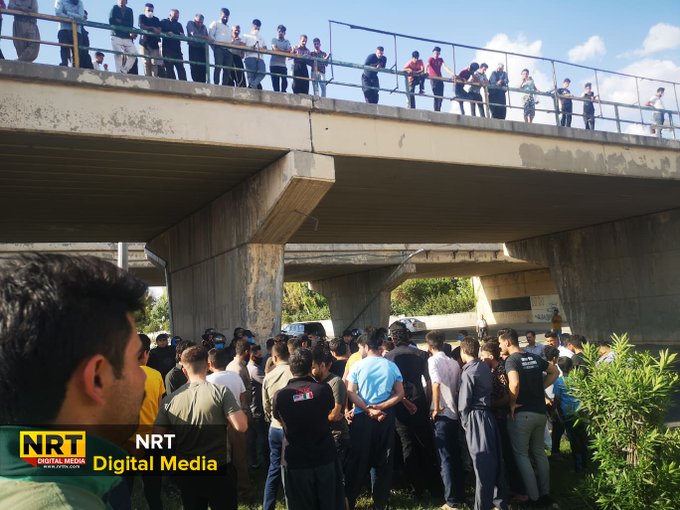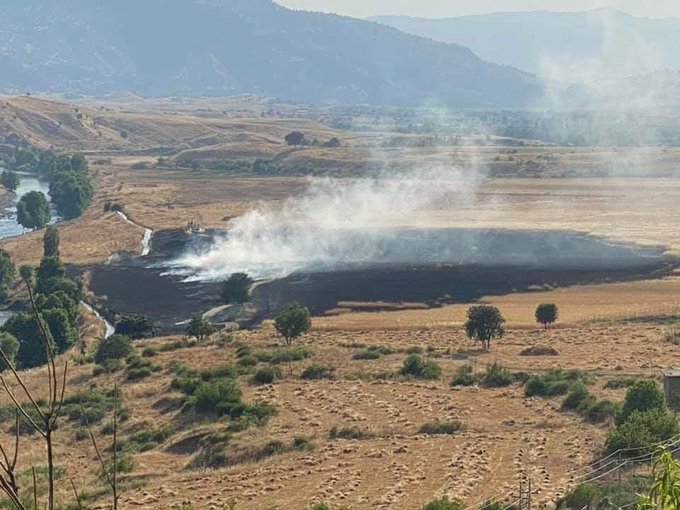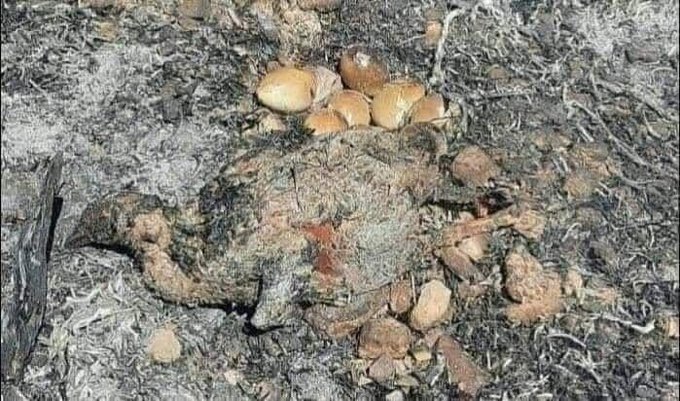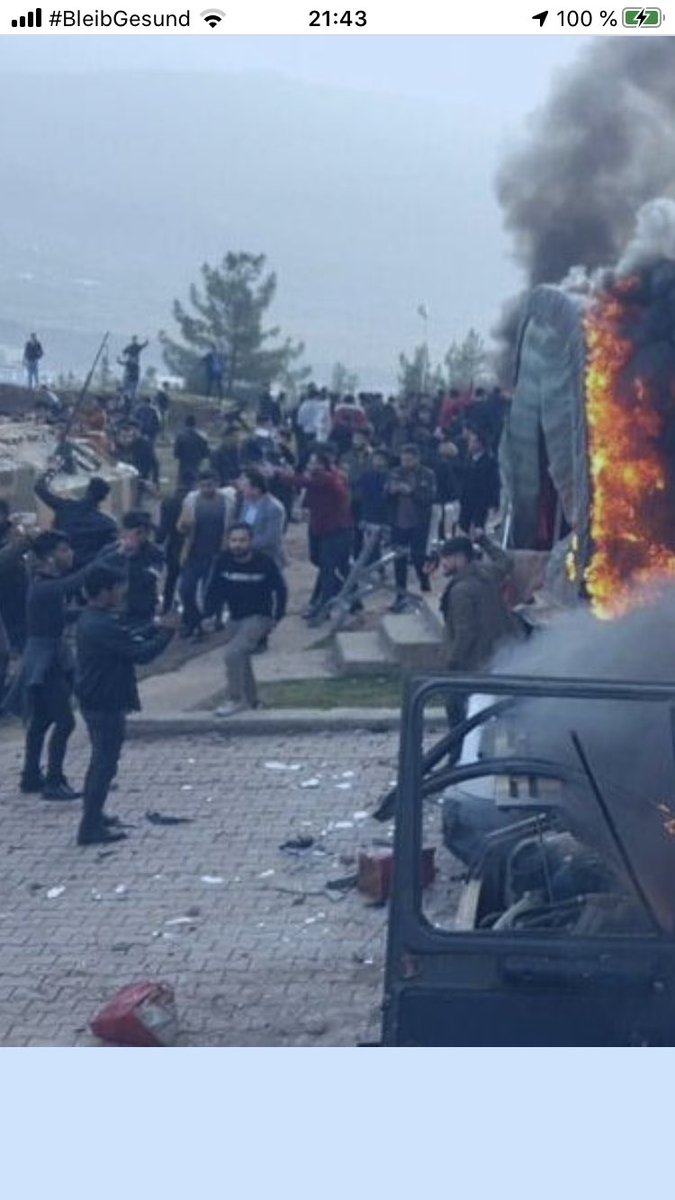Iraq's economy could reach irreversible lows within the next year unless urgent reform measures are adopted, its finance minister warned in an exclusive interview with AFP on Monday.
"Reform is inevitable," said Ali Allawi, who has been tasked with stabilising Iraq's economy following an oil price crash that saw state revenues slashed by half.
"If we do not amend the situation throughout the next year, we may face shocks we cannot fix."
Iraq's economy is projected to shrink by 10% in 2020 following a dramatic drop in oil prices from over $50 per barrel to about $20.
Opec's second-biggest oil producer relies almost exclusively on its crude exports to fund its budget, which includes a bloated public sector and broad state subsidies.
USCIRF Condemns Turkish Military Operations in Northern Iraq
Calls on Turkish President to Cease Air Strikes and Violence Targeting Civilian Areas
Washington, DC – The U.S. Commission on International Religious Freedom (USCIRF) condemned Turkey’s latest round of air strikes and ground operations (“Operation Claw-Eagle” and “Operation Claw-Tiger”) near civilian areas in northern Iraq, calling on President Recep Tayyip Erdoğan to order an immediate end to these actions.
USCIRF Chair Gayle Manchin said, “USCIRF calls on Turkey to immediately cease its brutal airstrikes in Sinjar, Iraq and to withdraw any ground troops—who represent a dangerous escalation of violence in an already-fragile area. These actions are particularly threatening to hundreds of traumatized Yazidi families attempting to return to Sinjar and to other civilians in northern Iraq—none of whom deserve to be placed in harm’s way by a NATO ally.”
The Turkish government claims that these actions, representing the most recent in a series of similar operations in the Sinjar area since 2017, are ostensibly targeting Kurdistan Workers’ Party (PKK) positions. However, these indiscriminate operations have taken place just days after 200 families arrived in Sinjar after six years in a refugee camp in Dohuk, Iraq. It also was in close proximity to towns and camps in which displaced Yazidi families have taken refuge since the 2014 genocide by the Islamic State in Iraq and Syria (ISIS).
“Turkey’s operations in Iraq and northeastern Syria make it clear that regional ambitions—not domestic security—are driving its actions today, and it cannot be allowed to do so with impunity,” USCIRF Vice Chair Tony Perkins stated. “We call upon the administration to utilize all diplomatic and economic leverage to protect vulnerable religious minorities in northern Iraq—as well as neighboring northeastern Syria—from Turkey’s indiscriminate military operations.”
Since 1984, Turkey has waged an intermittent war against the PKK, an organization of Kurdish separatists that the U.S. has designated as a terrorist group. The Turkish military has frequently targeted purported PKK positions—or those of groups directly or indirectly tied to the PKK—in neighboring Iraq and Syria. In this massive campaign, Turkey has claimed to strike over 500 militants in areas where there is no indication of attacks planned or occurring against Turkey. Once again, Turkey is showing their disregard for vulnerable religious and ethnic minorities who live in, or have been displaced to, those same areas.
In its 2020 Annual Report, USCIRF recommended the State Department include Turkey on its Special Watch List “for engaging in or tolerating severe violations of religious freedom.”
###
The U.S. Commission on International Religious Freedom (USCIRF) is an independent, bipartisan federal government entity established by the U.S. Congress to monitor, analyze, and report on threats to religious freedom abroad. USCIRF makes foreign policy recommendations to the President, the Secretary of State, and Congress intended to deter religious persecution and promote freedom of religion and belief. To interview a Commissioner, please contact USCIRF at media@uscirf.gov or Danielle Ashbahian at dashbahian@uscirf.gov.
There was growing anger in the Arab world on Saturday at Turkish President Recep Tayyip Erdogan’s “military adventurism” in Iraqi Kurdistan.
Ankara claims to be targeting Kurdistan Workers Party (PKK) militants with Operation Claw-Eagle, its first official air and land offensive on Iraqi soil. It attacked Sinjar, the Qandil mountains, Karajak, Zap and Hakurk with aerial and ground operations involving F-16 fighter jets, missile launchers, heavy artillery and special forces units.
Baghdad condemned the invasion, and the Turkish ambassador to Iraq was summoned to the Foreign Ministry twice in two days to explain his country’s conduct. The envoy was handed a note of protest, in which Iraq accused Turkey of “violations of Iraqi sovereignty by bombing and attacking targets within our international borders.”
The UAE also criticized the Turkish attack, and Saudi Arabia condemned Turkish and Iranian aggression on Iraqi land, offering its support for Baghdad in measures to preserve its sovereignty, security and stability.
The criticism reflects growing Arab suspicion of Turkey’s wider regional ambitions, analyst Bill Park told Arab News.
“The Arab reaction needs to be seen in this wider context — Turkey’s support of the Muslim Brotherhood, its unwillingness to confront Iran, its meddling in Syria, its military relationship with Qatar and indeed Somalia, the stance it has taken in Libya and its approach to energy exploration in the Eastern Mediterranean,” said Park, a visiting research fellow at King’s College, London.
“This incursion will only feed those suspicions. Turkey is quite friendless now in the Arab world.”



